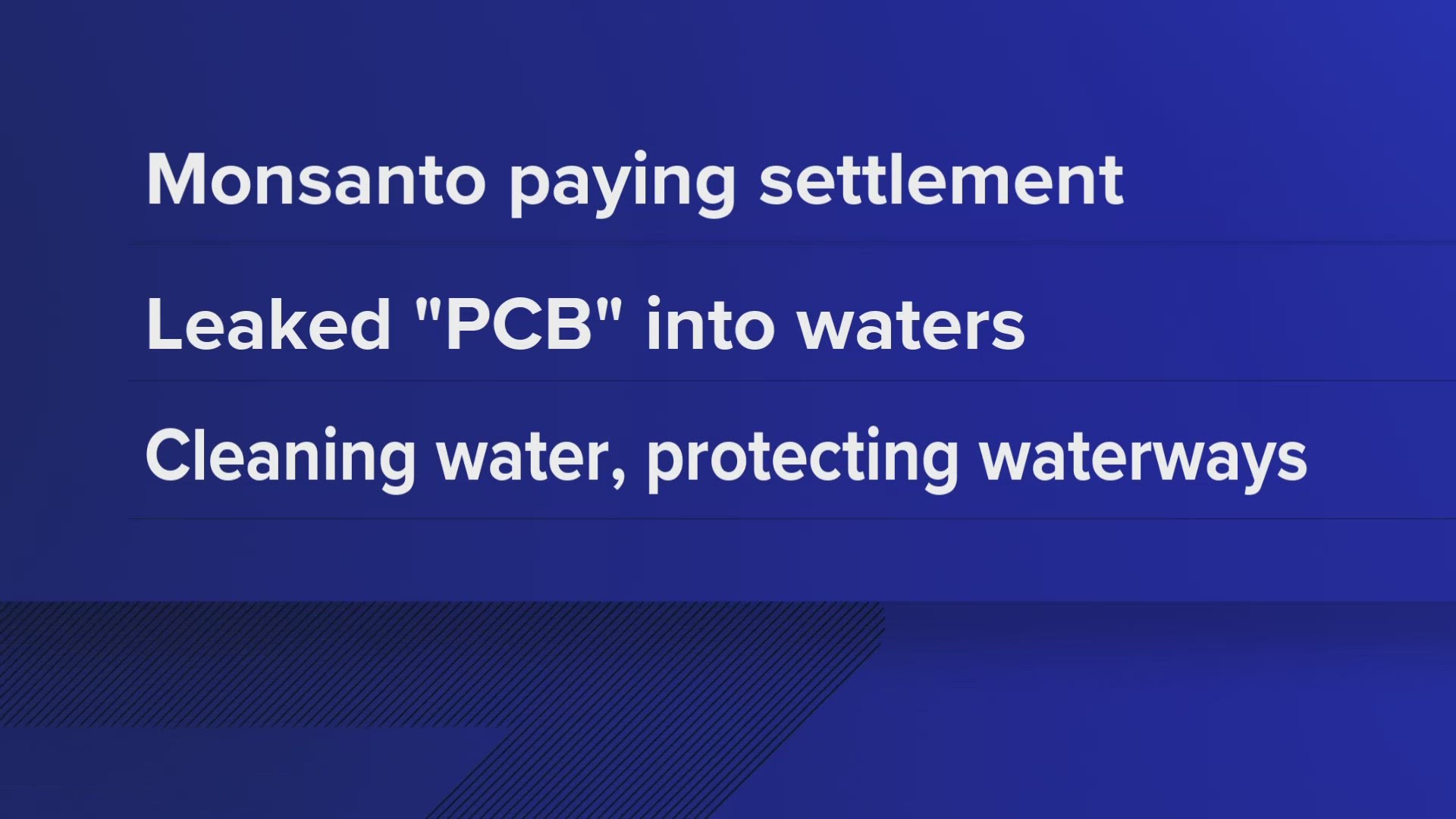KNOX COUNTY, Tenn. — According to a release on Tuesday, Knox County was awarded more than $2 million after a settlement with Monsanto.
They said the settlement was related to polychlorinated biphenyls (PCBs) chemical contamination of the Fort Loudon Reservoir and the Lower Clinch Reservoir. They said Monsanto was responsible for PCB contamination decades ago and reached a settlement in a class action lawsuit with several municipalities totaling more than $500 million.
They said the settlement money is going to municipalities that participated in the Municipal Separate Storm Sewer System program, where creeks and lake sediment had been contaminated.
The money is meant to be used to protect local waterways and mitigate the impact of PCBs, while also monitoring for other contamination. Knox County leaders said they set up a Stormwater Fund for the money to be used on education, monitoring and the implementation of projects to protect local waterways.
“We are excited about the opportunities this money gives us to protect our waterways and our citizens. We were contaminated through no fault of our own, but are determined to fix the problem,” said Jim Snowden, the Knox County Engineering and Public Works Director.
PCBs do not have any taste or smell, and range from an oil to a waxy solid. They were made from 1929 until 1979, and range in toxicity, according to the Environment Protection Agency. They were used in electrical, heat transfer and hydraulic equipment. They were also plasticizers in paints, plastics and rubber products.
The chemicals have a large variety of trade names such as Clophen, Leromoll and Soval. They have been shown to be carcinogenic in animals and can cause non-cancerous health effects in animals. The EPA said that studies have shown evidence that PCBs can also be carcinogenic in humans.

